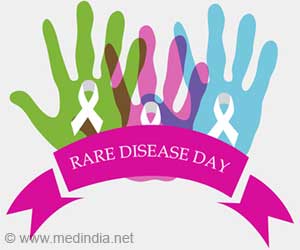Keratan sulfate, a large negatively charged saccharide found in the small airway of the lung helps treat emphysema.
Highlights
- Emphysema is a typical component of chronic obstructive pulmonary disease, a progressive and inflammatory airway disease.
- Keratan sulfate inhibits the enzymes which trigger COPD and reduces inflammation of neutrophils.
- Keratan sulfate has fewer side effects than the steroids given as the usual treatment.
According to Naoyuki Taniguchi, the leader of the group, this discovery could lead to the development of drugs based on glycans--biological sugar molecules--for the treatment of diseases such as COPD, which is the fourth leading cause of death worldwide.
Taniguchi says, "We are not absolutely sure of the mechanism through which smoking leads to a reduction in keratan sulfate, but felt that clearly the reduction is important in thinking about glycan-based strategies for combating emphysema and COPD."
They wondered whether the keratan sulfate might be playing a protective role in COPD. To test the hypothesis, they prepared a repeating disaccharide element of keratan sulfate, named L4, and administered it into two mouse models of emphysema--one a model of emphysema triggered by the enzyme elastase, and the other an exacerbation of smoking-induced emphysema triggered by LPS, a toxin found in bacterial cell walls.
In the first model, they found that that treatment with L4 prevented destruction of the alveoli--the small air sacs in lungs that are used to exchange gases, and in addition that it reduced the infiltration of a type of white blood cell called neutrophils, which is symptomatic of an inflammatory response, as well as levels of inflammatory cytokines and tissue-degrading enzymes.
In the exacerbation model, they found that the L4 administration prevented the influx of neutrophils. According to Taniguchi, "We found that L4 was as effective as dexamethasone in reducing neutrophil infiltration. This is very exciting, because dexamethasone, the treatment currently used for COPD, is a steroid medication that can have serious side effects and can in some cases make the outcome worse. It will be exciting if we can show that L4--a sugar molecule which we found had no adverse effects in the mice even at high doses--can be used as a treatment for this condition, which exerts a tremendous health burden."
Reference
- Congxiao Gao et al., A keratan sulfate disaccharide prevents inflammation and the progression of emphysema in murine models, American Journal of Physiology - Lung Cellular and Molecular Physiology(2016) 10.1152/ajplung.00151.2016.
Source-Medindia















